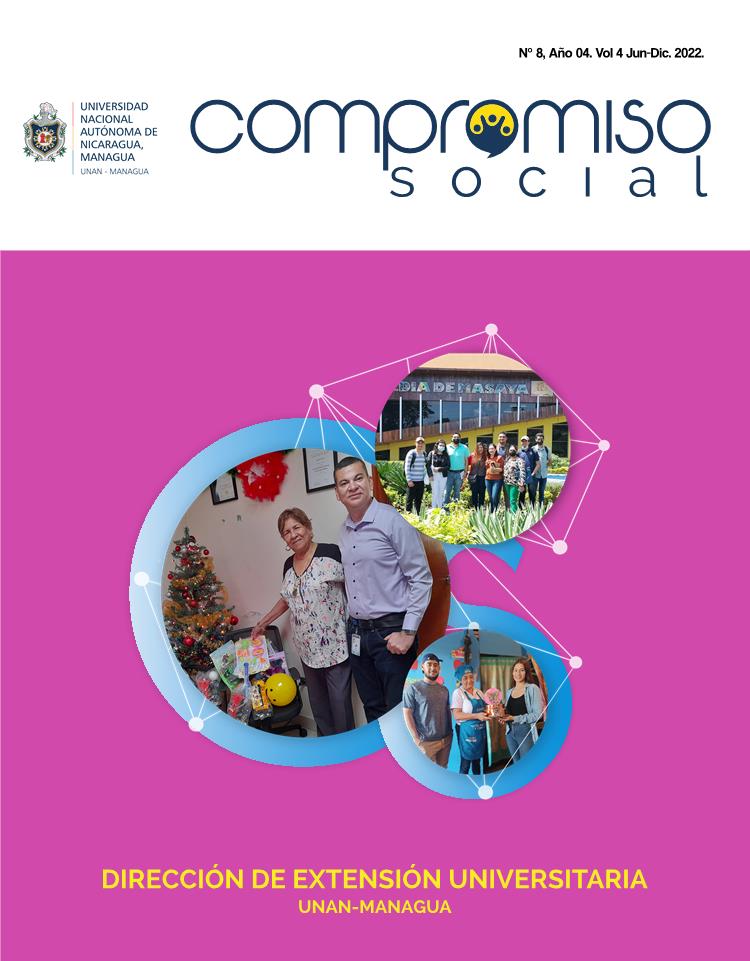The Objective and Structured Clinical Evaluation (OSCE) in the Nursing Degree: a new pedagogical experie
DOI:
https://doi.org/10.5377/recoso.v4i8.18622Keywords:
Innovative Strategies, Good Practices, Simulation, EvaluationAbstract
This articule glimpses the new times of teaching practice "A new paradigm in the training process", the Nursing Degree of the National Autonomous University of Nicaragua (UNAN) Managua, Multidisciplinary Regional Faculty of Chontales (FAREM) transcends in the formation of the curriculum by competence, moment in which they are highlighting new innovative strategies to enhance these skills required by students, the curricular components are giving the guidelines to follow methodologically in this new integrated training process, leaving behind traditional and repetitive elements in Training - evaluation, which are breaking down barriers of resistance. The inclusion of clinical simulation, OSCE, debriefing, among others, is part of these pedagogical innovations. For the faculty, it is the first time that the OSCE has been included in the evaluation processes, it is clear that, in international experiences, and they have shown relevance in the fulfillment of the teaching objectives. This experience is applied and systematized according to the literature of Óscar Jara described in his book; here he establishes the relevance of the ECOE for the development of competencies. The committee of evaluating teachers, managers, and collaborators actively participated in the three moments, before, during, and after. The evaluation was carried out with all the students enrolled; five stations were established that allowed evaluation of theoretical aspects, technical skills, non-technical, ethical-ethical in the clinical situation. In addition, evaluation rubrics were created, based on procedural clinical guidelines and care protocols, the experience demonstrated a clear relevance to evaluating the application of theoretical knowledge and procedural, social, and communication skills in the second-year nursing degree course III semesters
Downloads
References
Almodóvar, Fernández, Et al (2020) MANUAL PARA PREPARAR PRUEBAS ECOE DE ENFERMERÍA https://acortar.link/BDRKh4.
Cárdaba, RM et al (2021) La ECOE como método de evaluación de enfermería. Recuperado de: https://tinyurl.com/3fv3hcv8.
De Serdio Romero, E (2002). ECOE: Evaluación Clínica Objetiva Estructurada: Medicina de Familia (And) Vol. 3, N. º 2, Sevilla España.
Dreifuerst, K. (2012). Using debriefing for meaningful learning to foster development of clinical reasoning in simulation. J. Nurse. Educ, 51 (6), 326-333.
Fundación Uno (s.f). Guía de evaluación de destrezas básicas de enfermería. UPOLI, Managua Nicaragua.
José M. (2016). Evaluación del Debriefing para la Simulación en Salud (EDSS). https://tinyurl.com/3kaca2bu.
López, L (2017). Evaluación clínica objetiva y estructurada (ECOE) en la maestría de Enfermería Ginecobstetricia y Perinatal: una sistematización de la experiencia. DOI: 10.15517/revenf.v0i33.29695
MINSA Nic. (2014). Ministerio de Salud, Manual proceso de atención de enfermería del sector salud. www.minsa.gob.ni/.
Miller, G. (1990). The assessment of clinical skills/competence/performance. https://tinyurl.com/2du2v7c8.
Mosquera, J. & Galdos, P. (Eds). (2005) Farmacología Clínica Para Enfermería (Cuarta edición). Editorial Mcgraw – Hill Interamericana de España S.A.U.
Moreno Rodríguez, Miguel A. (2010). El arte y la ciencia en la anamnesis. MediSur, 8(5),28-32. [Fecha de Consulta 30 de marzo de 2022]. ISSN: Disponible en: https://www.redalyc.org/articulo.oa?id=180020098005.
Nicaragua. Gobierno de Reconciliación y Unidad Nacional. Ministerio de Salud. Normativa 004. (2013). Norma para el manejo Expediente Clínico y Manual de Procedimientos Para el Manejo del Expediente Clínico/Dirección Superior del Ministerio de Salud. Managua: MINSA.2ed. Marzo. 2013.
Souza, M y Mariscal M. (2016). Competencias y entorno clínico de aprendizaje en enfermería: autopercepción de estudiantes avanzados de Uruguay Competencies and clinical learning environment in nursing: self perception of advanced students in Uruguay. Enfermería Global. Uruguay.
Pérez, M. J.García, MJ (2014). Educación para la salud. España. Ed-Síntesis S.A.
Universidad De Ciencias Y Humanidades) UCH (2011). Metodología Del Cuidado De Enfermería: Guía Del Docente File:///D:/Carpeta%201s%20%20trabajo%20.
Downloads
Published
How to Cite
Issue
Section
License
Copyright (c) 2022 Universidad Nacional Autónoma de Nicaragua, Managua(UNAN-Managua)

This work is licensed under a Creative Commons Attribution-NonCommercial-ShareAlike 4.0 International License.




